Interview: BAFTA nominee Mikkel E.G. Nielsen on finding the balance and structure of "Sound of Metal"
 Tuesday, March 9, 2021 at 8:14PM
Tuesday, March 9, 2021 at 8:14PM by Nathaniel R
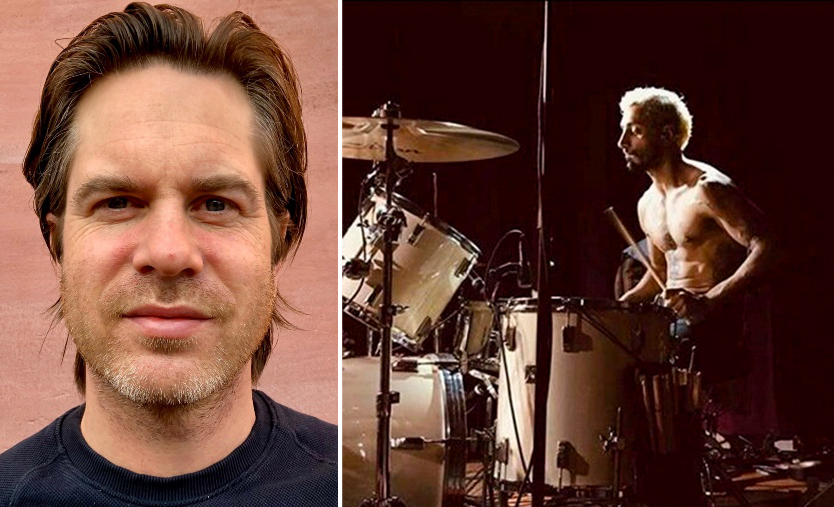
Talking to film editor Mikkel E.G. Nielsen (A Royal Affair, Beasts of No Nation), is a bit dizzying. His conversation moves around our subject, Sound of Metal, in circular fashion regularly bringing up both the films beginning, a raucous noisy concert where we first experience Ruben (Riz Ahmed's) hearing loss with him, and the films very quiet yet symmetrical ending. It doesn't surprise us then when he describes his job holistically. "My job is to try and create a whole from start to finish where you feel that you've been on this journey. Either it's revealing or it's fulfilling or emotional."
Nielsen divides his time between movies, music videos, and commercial work and though he loves the immersive challenge of cinema, he appreciates the mix. "Molding a movie" for months, he explains, becomes all encompassing. Working on a spot for three weeks, though, "Wow, that was almost like a vacation!'"
Another 'vacation' will have to wait. We're deep in awards season and Nielsen's fine work, honing the film's structure, and finessing the movies internal and external rhythms alongside its much praised sound design, has been honored with a Critics Choice Award for Best Editing and, this morning, a BAFTA nomination as well. We recently spoke to him about his work and international career...
[This interview has been edited and condensed for clarity]
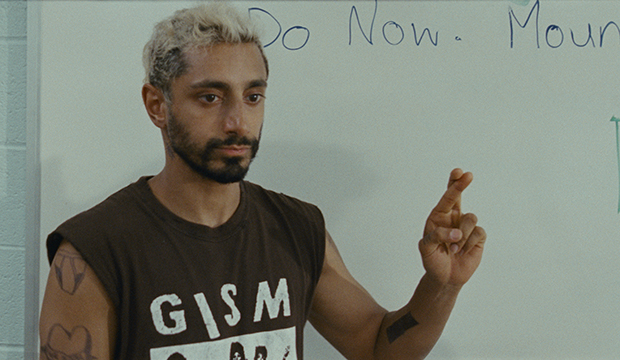
NATHANIEL: This must have been exciting to work on an as an editor given the creativity involved in the juxtaposition of sound and image in this film.
MIKKEL E. G. NIELSEN: Absolutely. Darius wanted to push the bar and I really like to search for projects where you're pushed to try something new. He wanted it to be a first person, character movie, where you would go into the head of this character. How can we stay with this character? How can we go in and out of that internal world with layers in the storytelling and as a rhythm for a whole film? He wanted us, as hearing people, you and I, to feel excluded for the first time.
I just found that so extremely compelling. And after so many years we can still try and play with the film language in a new way!
That’s very rare.
MIKKEL E. G. NIELSEN: And it’s so rewarding that it can actually still be done even though there's a trillion movies every year.
The film has a lot of interesting sound work. Was that central to your editing?
MIKKEL E. G. NIELSEN: Of course there is a lot to the technical side of the quality of the sound. I would edit with the sound. But I would also edit the movie in complete silence, like it was a silent movie. It was a way to try to find the balance.
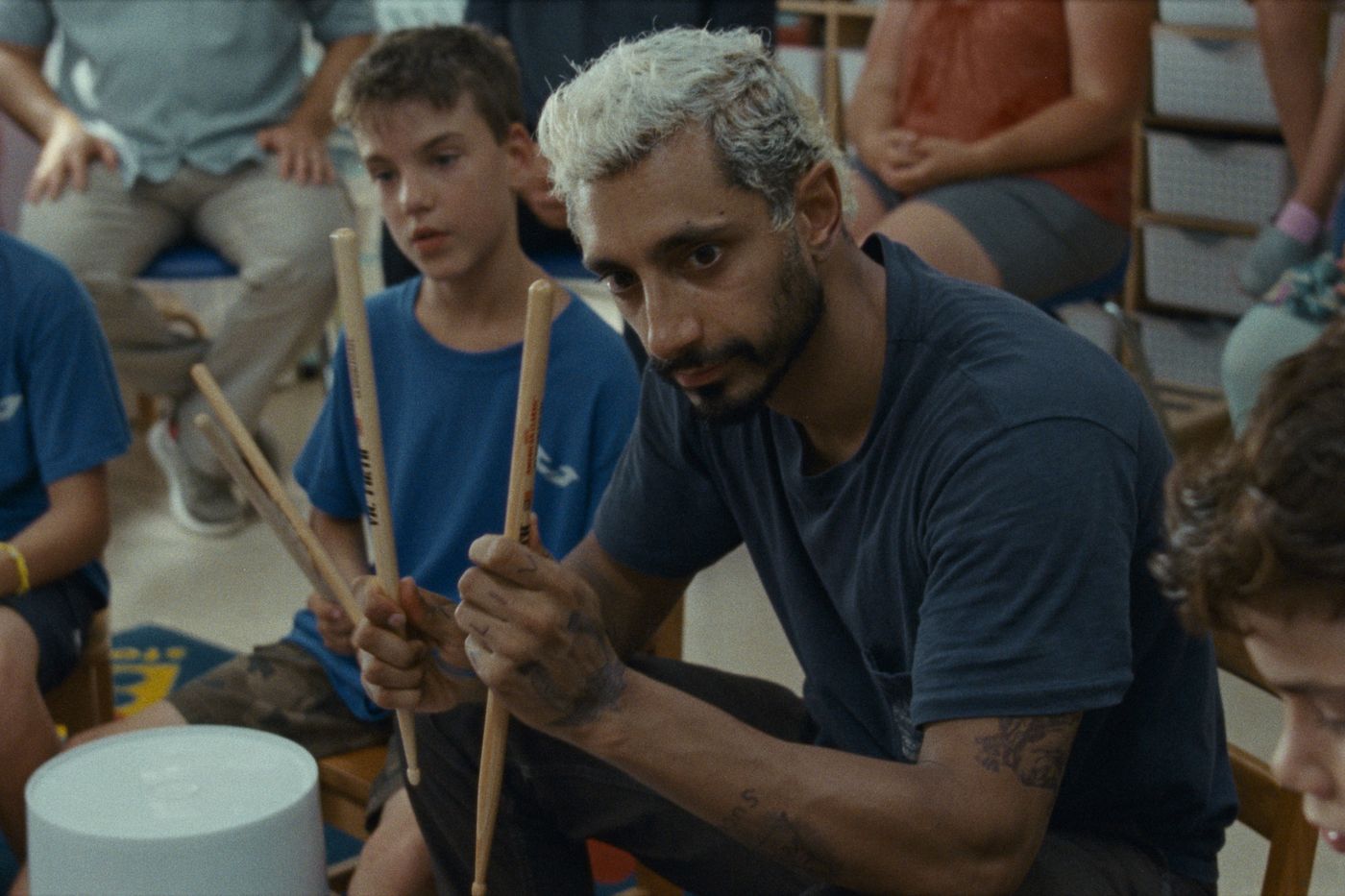
Wow. With editing, one of the things you're working with a lot is performance. What was it like with Ahmed?
MIKKEL E. G. NIELSEN: Riz was amazing but I didn't see him as an actor.
How so?
MIKKEL E. G. NIELSEN: I worked on Beasts of No Nation and it was similar in that you’re experiencing the world with the eyes and ears of the kid. It's visual. It actually really helped that most of the other actors in Sound of Metal are not professionals. It feels like a documentary when you meet the musicians or the deaf society. You have a feeling of realness and it's about trying to dial up those moments.
Were you editing during the filming or was this all a post-production process?
MIKKEL E. G. NIELSEN: I got the material two weeks before the end of shooting. I had a contract with Darius that he should stay away and that I would see it with completely fresh eyes. We wouldn't talk too much about the scenes and I would give him a first pass. It was three hours and 45 minutes and with a lot of mistakes. Some things are shot with the intention of going this way or that way but I like to see in the material in a new way. And a mistake might be interesting.
What do you mean?
MIKKEL E. G. NIELSEN: There’s a lot of scenes with the deaf society when you’re with the kids. If I edited that in a very intentional way with internal or external sounds to put you in or out of Ruben’s head... well, I would be concentrating on the technical aspects. But by allowing myself to treat this as a documentary and as a whole. Afterwards you can then ask the questions and start to create moments from that. Do we want this to be seen from Ruben’s perspective or from everyone’s perspective if it’s a group scene? When you cut out to a wide shot, it’s like a contract developed [with the audience] 'now, we are in the real world.'
Editing really makes or breaks movies. Can you give an example of a decision that really clicked the material together?
MIKKEL E. G. NIELSEN: With character films it’s about status and balance and believing the relationships. Originally we started the movie in the van and it was so difficult to understand the relationship between Ruben and Lou. You had to give them a lot of technical lines to make sense of everything. It was late in the process when we started the film with the concert.
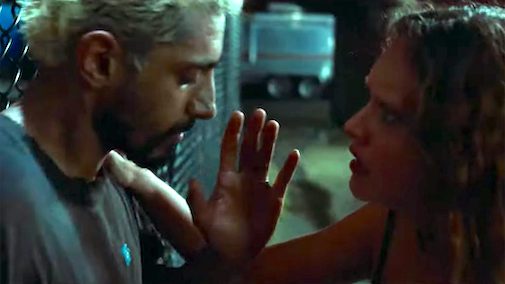
That surprises me because it feels so right.
MIKKEL E. G. NIELSEN: When we tried that what that did was create a first image that we could return to with the last image. So then there’s a whole film, you make a circle with the exact same framing. When we started the film with the concert you see them doing what they love and they feel very equal, right? So when you go to the next scene when they wake up in the van... he's so tender and creating a breakfast smoothie. You already know the relationship, that she’s the lead singer and he's the drummer. He runs the beat but he also drives the bus and keeps everything rolling. He’s the fixer. You know this instantly but it’s also so different from that raw energy we just experienced onstage.
But you didn’t originally start the film that way -- shuffling scenes is pretty standard for editing, yes.
MIKKEL E. G. NIELSEN: You do that a lot. It’s one thing is to read a book and you visualize everything yourself, but when you see a film it’s told by [the succession of] images, the way characters look at each other. You don’t say “love” but you see a kiss. We basically just transformed the script with the actors when they added something. And then you have to find the balance, because how should the audience experience it?
Starting with the concert was perfect because the soundscape is so crucial. It is more like how a score usually functions.
MIKKEL E. G. NIELSEN: Exactly. I liked that we didn't use music throughout the film, because it made it more raw and naturalistic. We used the soundscape as the emotional journey for Ruben. These are things we tried out in the edit, of course. We knew that we would have that piano scene near the end with Lou and her father and that the cochlear implant would show up again. So we knew that sound had to be the music.
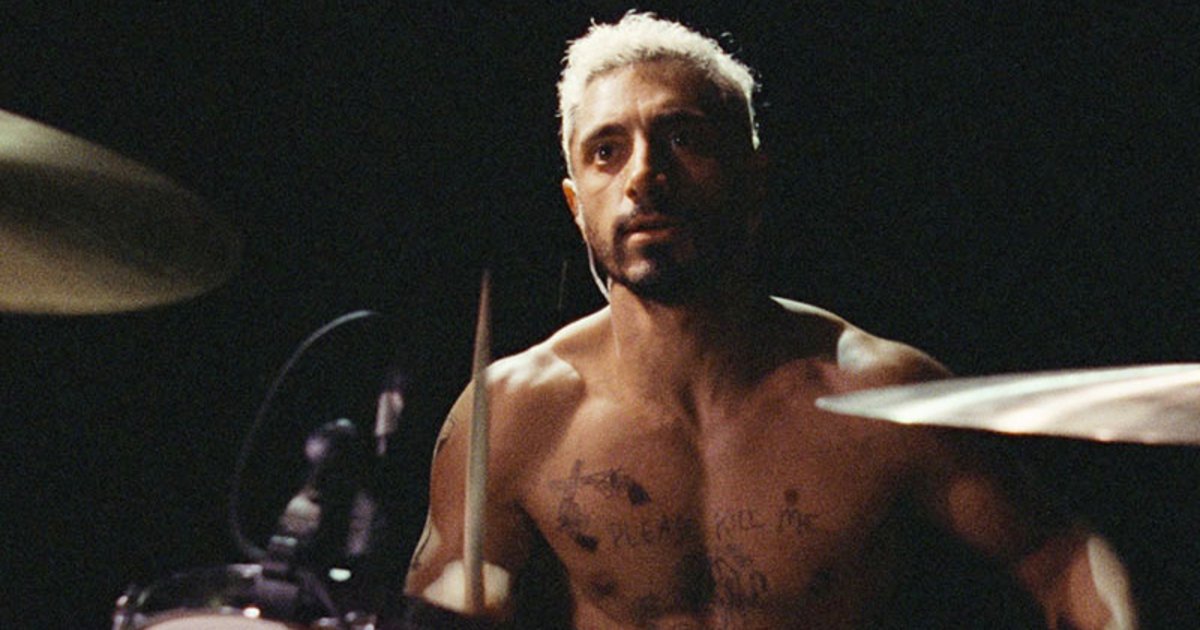
It’s really a three part structure. The whole first 45 minutes, is extremely efficient. It's like telling you, he goes to the doctor, he tries to solve everything. And suddenly we changed the pace completely and you land and it’s just so quiet. I’m sure some people feel it’s too long but [that’s intentional]. Like “Sound” is the first 45 minutes “Of” is the section within the deaf community. It’s inviting you in and therefore you have the change the feeling -- maybe you’re staying too long because you’re thinking and noticing and concentrating? “Metal” is when you activate the cochlear implant. That's how we worked with it as a structure.
You’re from Denmark. I love Scandinavian cinema. You’ve done fine movies there like A Royal Affair and Reconstruction. What’s it been like for you to “go international” so to speak?
MIKKEL E. G. NIELSEN: It’s super interesting and rewarding to work with people from all around the world. Nicolas who did the sound on this film is French. I edited in Copenhagen. Darius is in New York and would come here but we also mixed in Mexico and the film was shot in Boston. We used the world to create this and Darius found all of these specific people to make it happen. How did he find Paul Raci? He is that guy. And he gives you all these beautiful moments even though he's only in like four or five scenes.
He's so fantastic in it. Okay, no pressure, but this seems like it would be a really hard film to follow up. What are you looking for after this?
MIKKEL E. G. NIELSEN: I believe that the journey is everything. I would love to be involved in projects like this and for example Beasts of No Nation. Cary Fukunaga -- that was a baby he'd carried for 10 years. And it was difficult for him to raise the money to do the film and it was a very personal project. Darius raised money for 13 years to do Sound of Metal and he said “no” so many times because he wanted it to feel real and be the way he wanted it. It’s not going to be these kind of projects all the time, but if we can get it sometimes at least!
[Laughter]
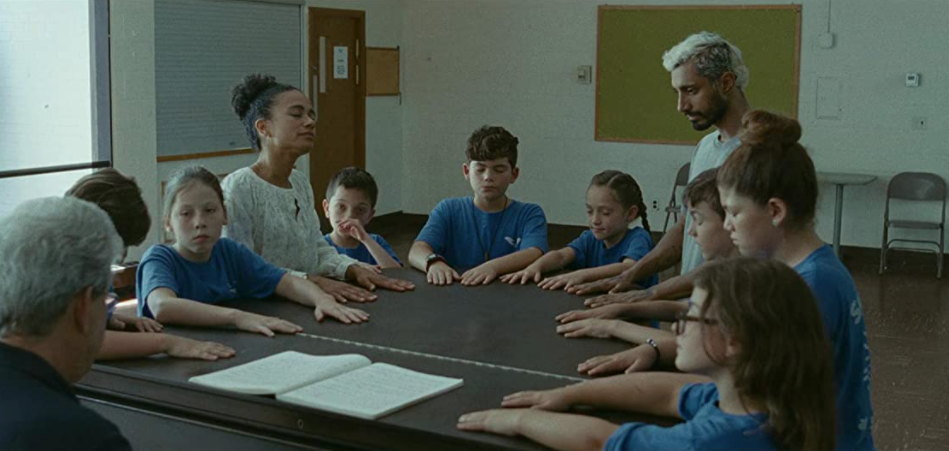
MIKKEL E. G. NIELSEN: I like the collaboration and if we can achieve something which is electric for an audience… or even if we fail, I mean, that's also fun!
You never know.
MIKKEL E. G. NIELSEN: It's a balance, right? You don't know before the film is out. We knew this was special but that’s different than also being good for others.
What other movies are you most proud of?
MIKKEL E. G. NIELSEN: I don't know because I've never been satisfied with anything! [Laughter] When you finish editing it's because they take it out of your hands. The worst thing that can happen is if you see the film and say ‘Why didn’t you try this?’ And I would be like ‘Why didn’t I try that?’ Honestly, why didn't we just try that thing? At least it's a choice that we made, then, whether or not you like it. And we can say, well, we made a decision.

P.S. Here's a video that discusses the editing process, also, in case you're curious.



Reader Comments (1)
I hope he wins the Oscar,that lovely final scene.